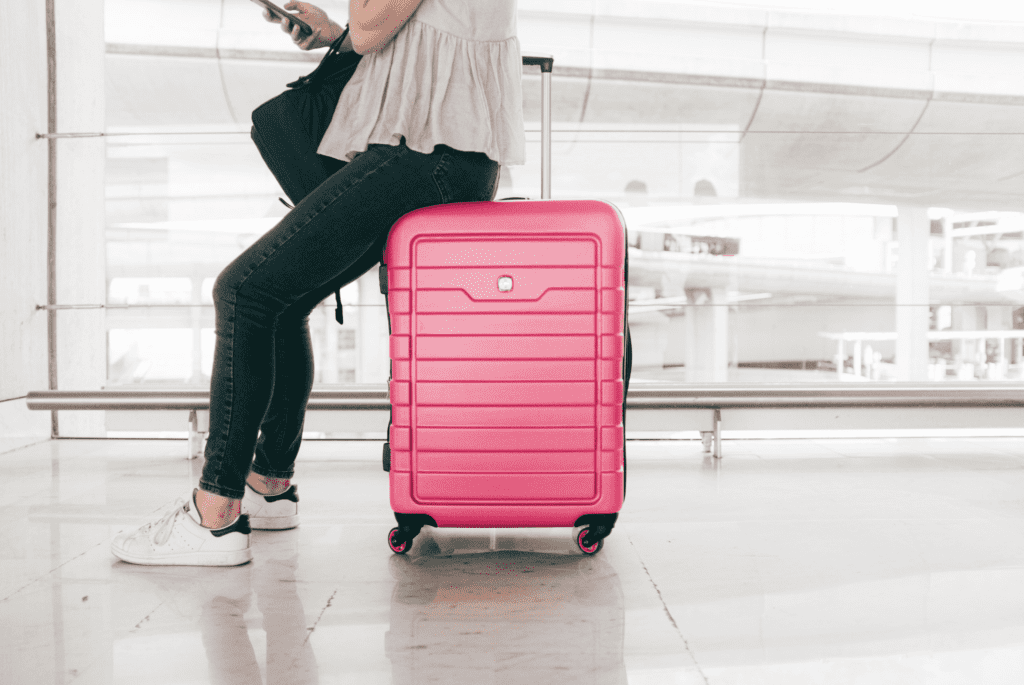The holiday season has arrived! Our team at Your Health Lab wants to help you and yours get to where you need to be, when you need to be there. Because both traveling and testing requirements are always changing, we decided to break down the current requirements just in time for the holidays.
Domestic Travel
This information is for those who are traveling within the United States and U.S Territories. Check your destination’s requirements before you leave because state, local, and territorial governments may have travel restrictions in place. You can check your destination’s requirements here. If you are not fully vaccinated, the CDC recommends delaying your travel until you get vaccinated.
Do I have to wear a mask?
Yes! Face masks are mandatory at all times when using public transportation within the United States, even for those who are fully vaccinated. This includes airplanes, buses, trains, and other forms of public transportation. Face masks are also mandatory at all times when in airports.
If I’m unvaccinated, should I get a COVID-19 test before I travel?
If you are traveling domestically, the CDC recommends getting a viral COVID-19 test 1-3 days before your trip. You can book your test at any of Your Health Lab’s locations and expect your result within 24-48 hours of taking the test. You can purchase a COVID-19 PCR test for $119 at any of our locations.
International Travel
The CDC recommends all international travelers to be fully vaccinated prior to their trips. Remember to check your destination’s requirements.
If I’m flying, do I need to take a COVID-19 test to fly back into the United States?
Yes! Starting December 6th, all air passengers, regardless of vaccination status and citizenship, must show proof of a negative COVID-19 test taken no more than 1 day before travel to the United States. You will have to show your negative result to your airline prior to boarding your flight. This policy applies to all passengers 2 years of age and older.
If you are not a U.S Citizen or U.S immigrant, you must be fully vaccinated in order to re-enter the United States.
Will being vaccinated make my traveling easier?
You bet it will. Just like the United States, many countries require all non-citizens to be fully vaccinated upon arrival. Maintaining physical distance can be difficult when traveling, so being vaccinated is the best way to keep yourself safe. Remember to wear your mask, wash your hands, and get tested if you begin experiencing any symptoms.
I’ve never been tested before. What’s the PCR test like?
A polymerase chain reaction (PCR) test is a viral test performed in our lab to find tiny amounts of COVID-19. Your health care provider will collect a sample from you, typically either from your nose or your throat. After this, your test gets sent to our lab where our team will examine and analyze your sample to determine if a virus is present.
You can learn more about a PCR test and other COVID-19 testing here.
I’m traveling within Texas for the holidays. Should I still get tested?
We definitely recommend getting tested before any travel, always. We have made getting tested easy with locations in Fort Worth, Victoria, Dallas, Houston, and San Antonio. Get tested before you leave, get tested before you come home. It’s easy and it’s worth it. The spread of COVID-19 slows with continuous testing and monitoring.
How can Your Health Lab help make travel plans easier?
Your Health Lab can give both you and your loved ones some peace of mind by getting you tested before you travel. We know times are strange, and that’s why it’s important to continue getting tested so you can enjoy your holidays with those who mean the most to you.
At Your Health Lab, testing is simple. Book your test at any of our locations and receive your results within 24-48 hours of taking the test. We work with most in-network providers and we send test results in a HIPPA compliant manner through text message, email, or both.
